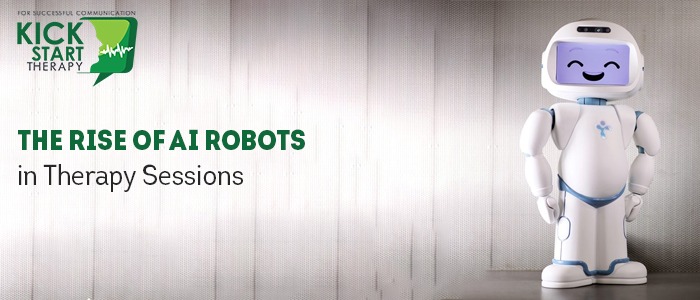
In recent years, the landscape of therapy support has been revolutionized by integrating artificial intelligence (AI) robots. These sophisticated machines, equipped with advanced algorithms and empathetic programming, transform how we approach therapy. Let's delve into the fascinating world of AI robots in therapy sessions and explore how they reshape therapy care's future.
AI robots are breaking down these barriers of traditional therapy sessions. With the rise of teletherapy, AI-powered robots aids in therapy helping one to be comfortable. This newfound accessibility ensures that individuals can promptly access the support they need.
One of the most significant advancements in AI-driven therapy is the development of empathetic robots. These machines are not just programmed to respond; they are designed to understand and emulate human emotions. Through natural language processing and facial recognition, AI robots can analyze verbal and non-verbal cues, allowing them to respond empathetically. This ability to recognize emotions fosters a sense of connection, creating a safe space for individuals to express their feelings openly.
AI robots excel at processing vast amounts of data quickly. This capability lets them personalize individual therapy sessions based on their unique needs and preferences. AI robots can adapt their approach in real time by analyzing a person's speech patterns, emotions, and responses. This personalized therapy experience ensures that individuals receive tailored support, crucial for effective therapy care.
One of the significant advantages of AI-driven therapy is the absence of judgment. Many individuals hesitate to share their deepest thoughts and emotions with another human being due to fear of being judged. AI robots provide a non-judgmental, unbiased support. This sense of anonymity allows individuals to get the needed aid, fostering an environment where they can explore their feelings without fearing social stigma.
AI robots are not replacing therapists; they are complementing their work. Therapists are utilizing these machines as tools to enhance their practice. By collaborating with AI robots, therapists can focus on deeper aspects of therapy while the robots handle routine tasks. This collaboration ensures that individuals receive a holistic and comprehensive therapeutic experience, combining the human touch with the efficiency of AI.
While integrating AI robots in therapy sessions brings numerous benefits, it also raises ethical considerations. Privacy, data security, and the boundaries of AI-driven therapy are crucial areas that need careful consideration. As we embrace this technological revolution, it is essential to establish robust ethical guidelines to ensure that AI therapy remains a safe and reliable avenue for therapy support.
Using AI robots in therapy sessions marks a significant leap forward in therapy sessions. These machines are becoming more sophisticated, empathetic, and effective with each passing day. The future holds the promise of AI robots playing a pivotal role in making therapy support universally accessible, breaking down barriers, and creating a world where everyone, regardless of their circumstances, can receive the help they need.
In this age of technological innovation, let us celebrate the fusion of empathy and artificial intelligence. Together, they are shaping a future where compassion knows no bounds—a future where the healing power of therapy is available to all, one empathetic response at a time.






